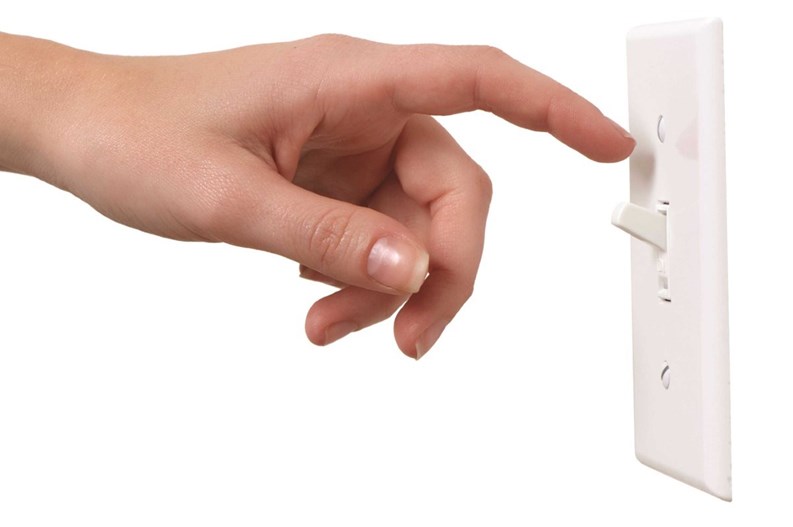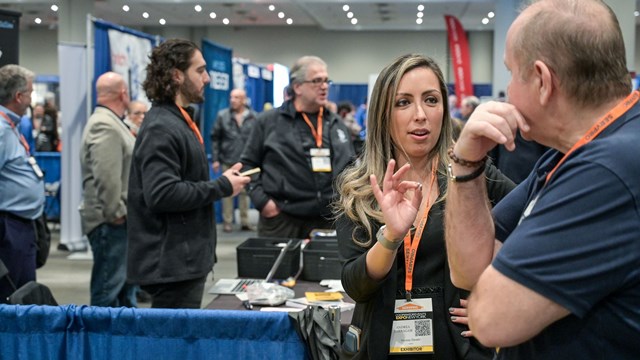Energy efficiency has become a “buzz word” over the past couple years in South Florida and more and more gadgets and devices have come on the market that are specifically designed to use less energy. Saving energy does a lot more than just reduce a building’s carbon footprint and toxic emissions, however—going green can save a building some green too. The steps condos and HOAs can take to reduce energy consumption and save money range from the very simple to the very complex.
We asked various energy experts to offer their best tips for saving energy and money. Remember, the list is just a start—there are many ways in which you can go green, but following some of these ideas is a great place to start.
Better Appliances and Accessories
It’s simple: upgrade appliances and other accessories to more energy-efficient models, and you’ll see a major difference. When you’re choosing new appliances, look for the Energy Star certification and the EnergyGuide Label. The certification means that the appliance has met standards that make it an energy-efficient unit. They use less energy and water than the older models. The Energy Star label was established to reduce greenhouse gas emissions and other pollutants caused by the inefficient use of energy and to make it easy for consumers to identify and purchase energy-efficient products.
“Condos should be a little more vigilant with regards to equipment,” says Michael Dobson, president and CEO of the Florida Renewable Energy Producers Association in Tallahassee. “What types of dishwashers, washers and dryers and refrigerators are they using? They should be using up-to-date Energy Star equipment and there are tax breaks, and everyone likes those.” For additional information check out www.energystar.gov.
Schedule an Energy Audit
With anything in life, it’s hard to know where you’re going when you don’t know where you’ve been—and a condo building is no different. An energy audit—performed by a certified professional from a reputable firm—will provide an overview of how much energy your building is saving and losing. The experts say that as a result, you’ll see what changes you may need to make.
“What the energy audit can do is identify opportunities to be more energy efficient,” says Dobson. “It can be as simple as looking at past bills to identify over-charges to the auditors using sophisticated equipment like data recorders.”
Hiring a company to do an audit can point out problems. According to Total Comfort Installations (TCI), an energy auditor in Pensacola with several Florida locations, sealing cracks, gaps, leaks and adding insulation can save up to 20 percent on either home heating and/or cooling costs. The company recommends testing for air leaks by holding a lit incense stick next to windows, doors, electrical boxes, plumbing fixtures, electrical outlets, ceiling fixtures, attic hatches and other locations where there is a possible air path to the outside. If the smoke stream travels horizontally, you may have located an air leak that may need caulking, sealing or weather stripping, according to TCI.
Spread the Word
“South Florida residents should be vocal and let their elected officials know that energy efficiency and conservation is important to them,” says Dobson. “There is an ongoing dialogue and debate right now about solar companies installing panels on the rooftops of condominiums. There are certain HOA regulations that say it causes some sort of an interference. There needs to be clarity on the subject. It’s important for the condominium community to provide guidance to members of the Florida legislature.”
Use Solar Reflective Paint
Solar reflective paint can reduce heat transfer to the indoor environment, thereby lowering air conditioning costs. This is a key issue in South Florida. “The main point in hot climates like ours is to reflect the solar radiation back from the building so it is not absorbed into the building,” says Suzanne Cook, executive director of the Florida Green Building Coalition in Tallahassee. “You can do that through solar reflective paints on your exterior walls. These paints are very common now. The reflective value is listed on the can. There is no difference in the quality or appearance of the paint.”
Buy a Water Heater Timer
If a full upgrade to energy-efficient appliances proves too costly, Cook recommends buying a timer. “I think it’s very important to keep a timer on your water heater,” she says. “Your water heater is constantly on all day long, so it’s constantly heating your water, even when you’re not home. You can set it to come on an hour before you get up in the morning and maybe an hour or two at night when you’re cooking or before you go to bed. So it’s only running two or three hours a day, rather than 24 hours, all day long.”
Adjust Your Thermostat
Individually, condo or co-op owners can save energy by adjusting their thermostats. “If you set your thermometer back one or two degrees you can save 10 percent on your cooling load,” says Stephanie Thomas-Rees, research architect for the Florida Solar Energy Center in Cocoa. “That’s not your electric bill—it’s your cooling load, which is the biggest load in residential homes in Florida. By simply setting your thermostat a degree warmer in the summertime and a degree cooler in the wintertime would make a big difference. The average unit owner won’t be able to tell the difference between one degree or two.”
Seal Your Home
The building envelope is the physical separator between the interior and the exterior environments of a building and includes the walls and roof systems, says Cook. “You have to tighten the building envelope to make sure there is no air leakage,” she says. “If these are older units, they probably have ducts that are sealed with duct tape. Duct tape doesn’t have longevity and it loses its adhesiveness. You have to stop air flow from around doors, your roof and around windows. If you don’t fix air leaks, you are wasting money and energy.”
Insulate, Insulate, Insulate
Insulating your home will not only help reduce your heating and cooling costs, making it more energy efficient, but it will also make your home more comfortable, say energy experts. “Increasing insulation will most certainly lower your electric bill,” says Dobson. “R-30 ceiling insulation is adequate in hot climates if the roof is white but it wouldn’t hurt to add a little more. In this case a little goes a long way. And the great thing about it is the federal government has passed money down through the utilities that subsidize that insulation cost. The cost to unit owners would be minimal if any, but the long term cost could decrease energy costs as much as 40 percent. Insulation makes a huge, huge difference.”
According to TCI, “most U.S. homes should have between R-22 and R-49 insulation in the attic. Insulating ceilings, walls, attics, floors, crawl spaces and basements to recommended standards can reduce heating and cooling costs by 5 percent to 50 percent.” Most of South Florida, according to the EPA guidelines, is in Zone 1, which recommends an insulation level of R-30 to R-49 for the attic, and R-13 for the floor.
Become More Sensitive
Dobson believes that lighting is an area where most homeowner associations can make changes. Dobson recommends that management install lighting controls, vacancy sensors and timers that will help to turn off lights that aren’t needed. These can be installed in fitness centers, restrooms, electric rooms, laundry rooms, trash collection rooms and all common areas. Inefficient lighting can consume up to 15 percent of a building’s energy needs or more. Energy-efficient lighting can reduce consumption by 50 percent or more.
Learn About Incentives
If you want to install Energy Star appliances and other energy-saving accessories, such as low-flow shower heads, it’s possible to earn money back if you know how. A good place to start, says Cook, is to check out the Department of Energy (DOE) website found at www.energy. gov or you can go to the Database of State Incentives for Renewables & Efficiency (DSIRE). Florida’s guide can be found at www.dsireusa.org and click on the state map.
Lisa Iannucci is a freelance writer and a frequent contributor to The South Florida Cooperator. Staff Writer Christy Smith Sloman contributed to this article.





Leave a Comment